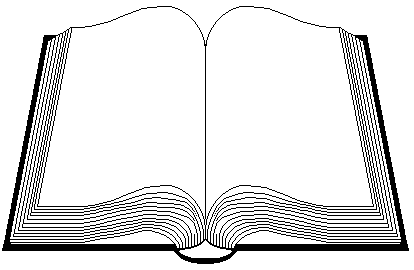
|
|
|
|
|
|
|
||
Linda Hansen |
|||||||
 |
|
||||||||||||||||||||||
| About ... | By Type | By Subject |
Are there research resources on the internet? Lots and lots. Will they be easy to find and use effectively? Probably not. The internet has millions of sites on millions of topics and finding your way can be a daunting task, particularly if you actually have to find what you are seeking. Many users automatically go to a specific search engine (usually the one a friend introduced them to) without considering other possibilities such as libraries.
The internet is just one tool -- it can make your research more effective and efficient or it can make it more difficult. The more you know about the internet, the more you know about your research needs, and the more often you use the internet for research in your field, the more successful you will be using the internet.
While on the net, you may run across a variety of words, phrases, terms, and symbols with which you are unfamiliar. Some of these are very important to a good (efficient, effective, non-frustrating, successful) internet session. If you see an item called README, About ..., Site Map ..., Quick Jumps ..., FAQS ..., don't ignore it. Such items provide valuable information about the site you are in and are often updated on a regular basis. Some will offer you an opportunity to request newsletters and updates via email; others may index items on the site; still others may explain in which documents you are welcome and in which you are not.
Access to some sites and documents may depend on your having particular applications or plug-ins. Some sites will offer to help you download and set-up what you need; others won't. Most sites will expect you to take responsibility for knowing what the application or plug-in is, how it should be loaded on your particular system, how it will interact with applications and programs that are already loaded, and the like. Remember, there is a reason that "plug and play" applications are sometimes referred to as "plug and pray"; they do not always work as expected.
This brings us to some important rules for internet use. When you connect to other computers on the internet, you are playing in someone else's back yard. The files you are searching belong to an individual, a company, an organization or an institution. Files on the internet may not be loaded just the way you would like, may not contain the exact information you want, and may disappear without notice. Materials that can be sold to make a profit will probably not be freely available. Only a very small portion of the world speaks English. Everyone -- company, research institution, individual, government, organization -- has an agenda. Just because the information appears on the internet does not mean that it is current, accurate, or qualitatively better than what appears elsewhere. People lie.
It may be more efficient and effective to search items sitting on your bookshelf or in your library's databases than to "cold search" the internet. If you use every searcher, crawler, and wanderer that indexes the web, you would only have searched a small part of the total content. Depending on the type and setting, if your system or the search engine is filtered, you might retrieve less than 1% of what is available on any given topic. Search mechanisms differ from search engine to search engine; a search strategy constructed for one will not produce equivalent results on the others.
When you visit the internet for an assignment or for academic research, you are looking for sites which contain information and data. Sites which entertain you with cute applets, pretty colours and jokes may be fun but they are not adding much to the progress of your research project.
For most assignments, you may want to begin your search close to home with a search of a good library, then explore the wider internet.

This page created and maintained by Linda Hansen.
Comments and suggestions to: lhansen16@gmail.com
Created: 1996/10/11 Last updated: 2014/09/08
Terms of Copyright
This document: ...resource/index.htm